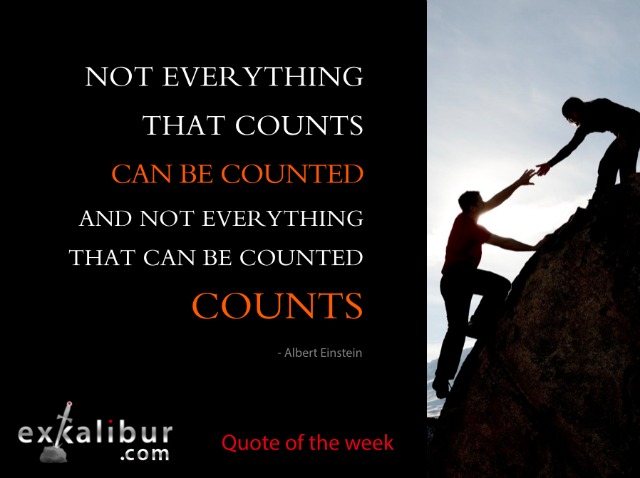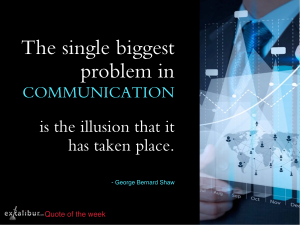This well-known statement from Albert Einstein is much more powerful than you might first believe.
The essence is that we tend to use some very simple metrics to measure success.
We lean toward what we can count because it’s easy.
We can count inventory products, hours worked, sales changes. For sure, those are important but it’s mighty easy to get lost in the numbers and miss what really matters.
How do you measure what can’t be quantified?
You can measure how many hours someone is working, but whether they’re productive and effective in advancing your initiatives?
Not so clear.
– How do you measure the productivity of knowledge workers?
– How do you evaluate the effectiveness of your onboarding process?
– How can you tell if your marketing messages are resonating with your audience?
Don’t get lazy about what counts
It’s too easy to major in the minors. We default to the easy stuff and skip over the activities that are difficult to quantify.
As a leader, you don’t have that luxury. You must lean in to find ways to evaluate the success of programs and people that aren’t so easily measured.
Don’t be afraid of being too subjective .. of being unable to precisely measure the strength of your culture, for example, or the efficacy of your training programs.
There is nothing wrong with using your judgment.
That’s why you’re getting the big bucks, isn’t it?
Many of the thorniest issues we face are difficult to quantify or otherwise measure. They require discretion.
It’s okay to apply your considered judgment. You’re allowed to be subjective when necessary.
Get comfortable with uncertainty. It’s around to stay. Evaluate even if you can’t measure.
Not everything that counts can be counted; and not everything that can be counted, counts.



